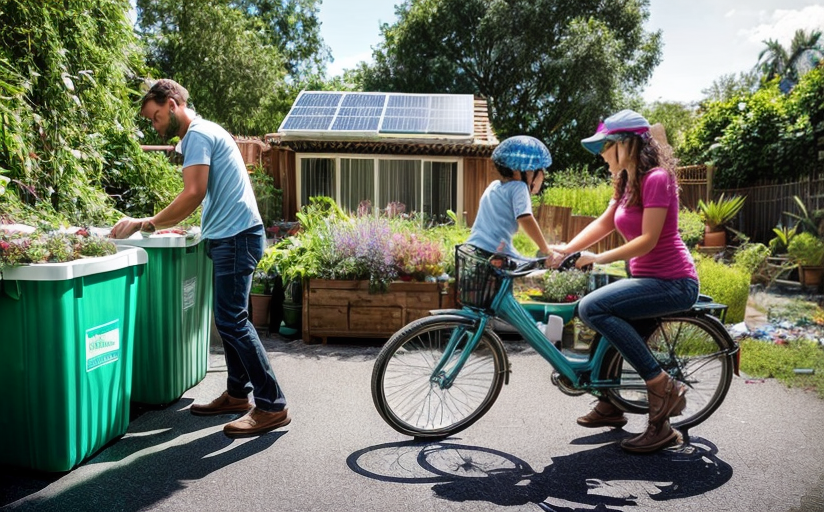Sustainable Living: Taking Steps Towards a Healthier Planet
Sustainable living essentially refers to a lifestyle that aims to reduce an individual's or community's use of natural resources. The importance of this concept has been rising tremendously due to the growing awareness of our planet's finite resources and the current environmental concerns. Developing sustainable habits can help us lower our environmental footprint and contribute to conserving the biodiversity and ecological balance.
The Power of Sustainable Practices
Let's look into some areas where we can easily adopt sustainable practices:
Transportation
Consider walking, cycling, or using public transportation. Not only will it help to reduce carbon emissions, but it's also healthy for you. You can also choose electric or hybrid cars, which are more fuel-efficient compared to traditional vehicles. Carpooling is another good practice when public transportation is not available.
Food Consumption
Choosing local, seasonal, and organic foods can greatly reduce the environmental impact of our diets. Minimizing the consumption of processed and packaged foods not only is good for our health but also helps in reducing unnecessary packaging waste. Adopt a plant-based diet if possible, as it demands fewer resources compared to meat-based diets.
Energy Usage
Switch to renewable energy sources like solar or wind, if accessible. Make sure to turn off lights and unplug electronic devices when not in use. Use energy-efficient appliances and light bulbs to reduce your energy consumption.
Waste Management
Practising the 3 Rs - Reduce, Reuse, Recycle - can dramatically cut down the waste we create. Composting organic waste can help reduce landfill waste and serves as a excellent nutrient-rich soil for plants.
Challenges and Solutions
While the importance of sustainable living is undeniable, practicing it consistently may pose challenges due to habitual practices, initial costs, and lack of knowledge. One practical solution to these challenges is to start small. Begin with easily achievable practices like using cloth bags over plastic ones, consuming local products, and recycling. This small shift can help make the transition easier and more manageable.
Long-term Benefits
The long-term benefits of adopting a sustainable lifestyle are substantial. From improved health due to eco-friendly habits and wiser consumption choices, to significant financial savings from reduced energy and resource use. Also, you are contributing to the global cause of environmental protection, ensuring a safer, healthier planet for future generations.
In essence, adopting sustainable living is not just about making our lives better, but it's about valuing and preserving the earth that we all share. Remember, every action, no matter how small, contributes to a larger cause. So, let's embrace sustainable practices in our daily lives and strive to create a positive impact.




















Comments
Leave a Comment